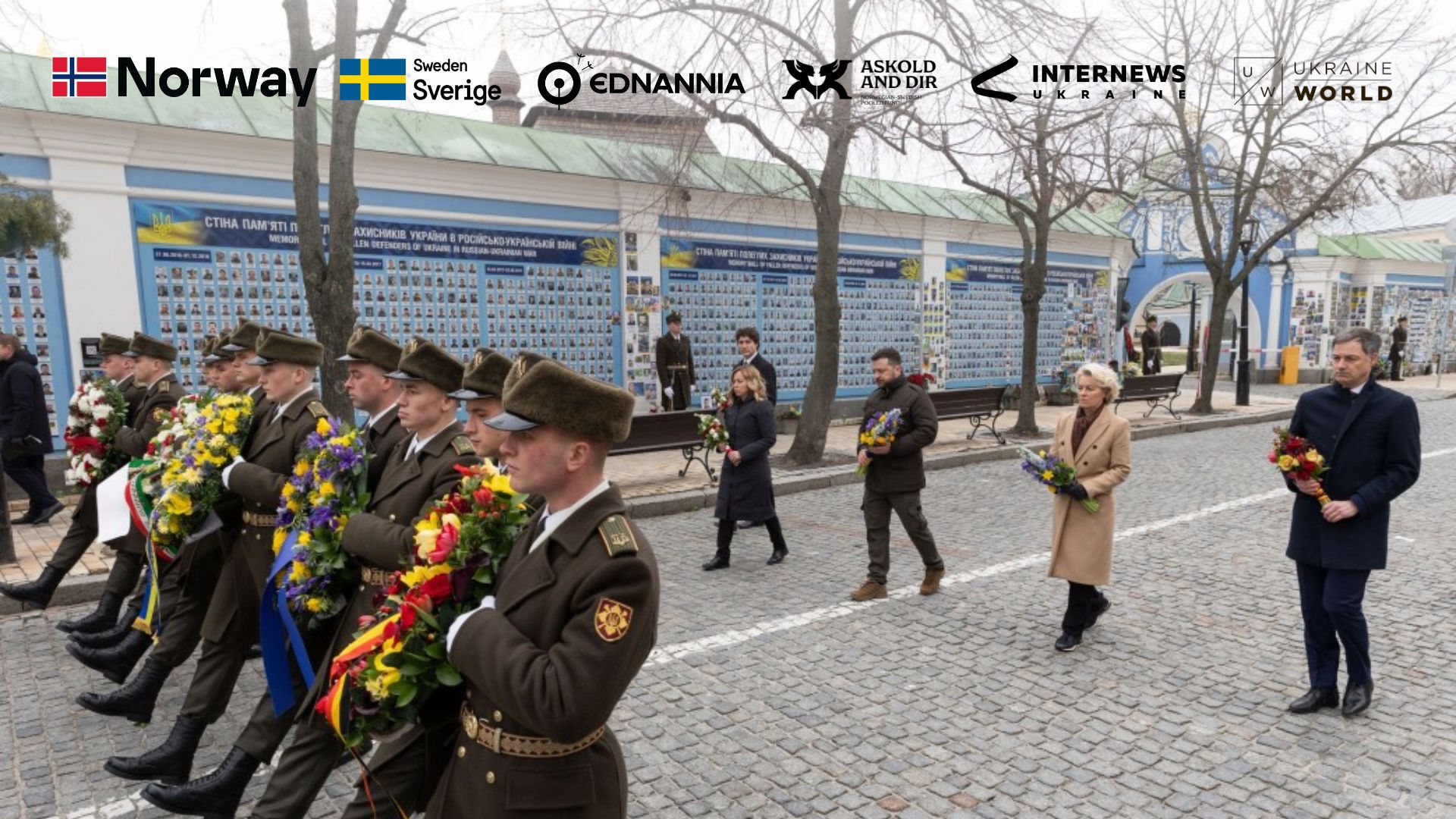
Behind every headline and every number, there is a name and a life. Buildings can be rebuilt, infrastructure can be restored, but the lives of those fallen are lost forever.
While data is essential, it often reduces thousands of lives to numbers, sometimes stripping them of identity and meaning. And even powerful headlines, filled with urgency and grief, eventually fade.
That is why remembrance matters: to build a culture that honours people, not numbers, and keeps humanity alive even amid war.
In nearly every town, communities build memorials: walls of portraits, steel plates bearing names, symbolic fountains, or "Alleys of Memory"
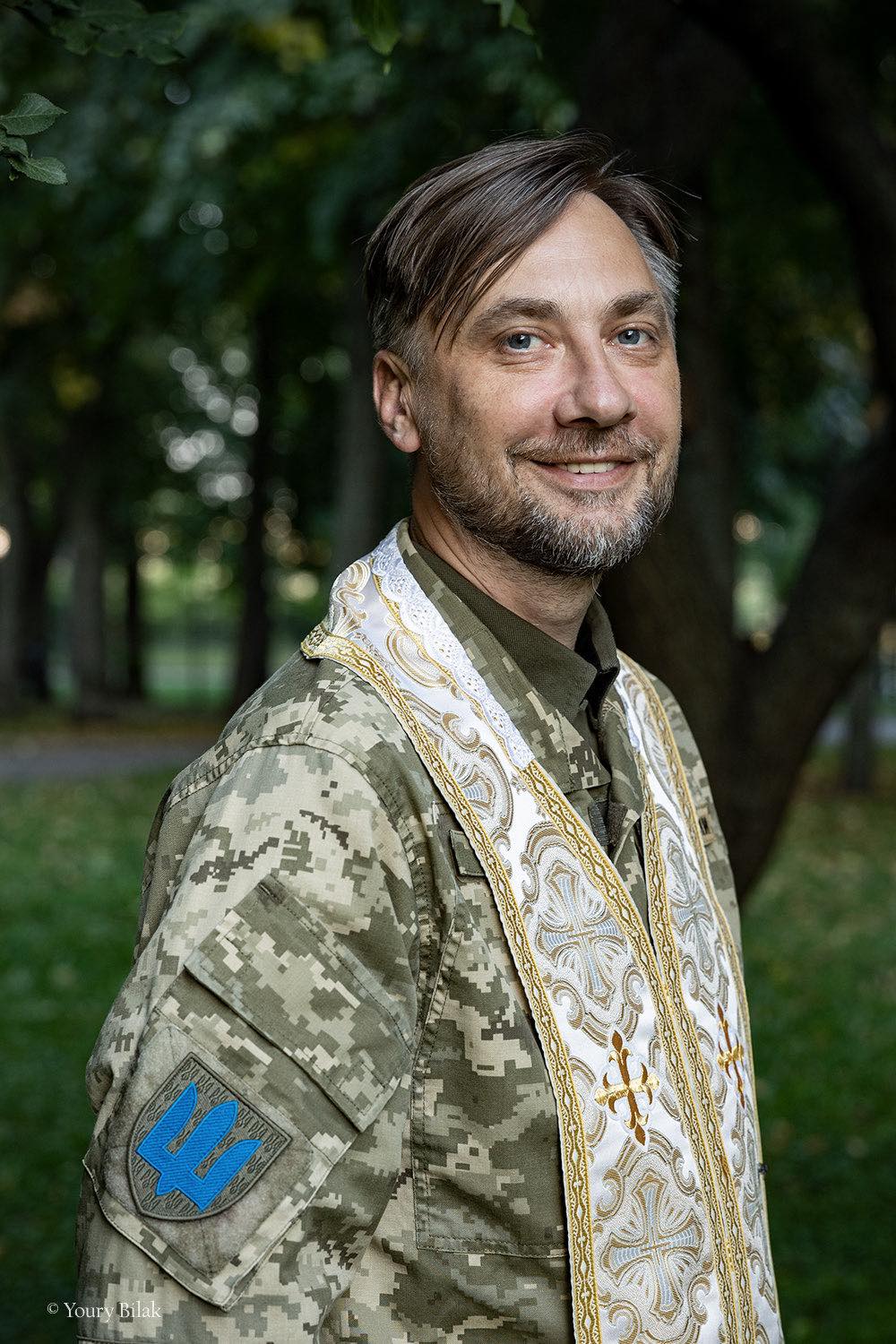
We spoke with Father Serhii Dmytriev, known by his call sign Padre. He is a military chaplain and the head of Eleos-Ukraine, a humanitarian organisation of the Orthodox Church of Ukraine. Through shelters, education and long-term aid, they create safe spaces where people can heal, regain confidence and find strength to move forward.
Our conversation focused not only on why remembering matters, but how it should be done:how to ensure that behind every name there is a story, a voice, a face.
Father Serhii Dmytriev is also closely involved with The Memory Book of the Fallen for Ukraine, one of the earliest and most comprehensive platforms documenting the lives of those who died defending Ukraine since the beginning of Russia's aggression in 2014.
The Memory Book of the Fallen for Ukraine was founded in July 2014 by a group of dedicated volunteers. Supported by the National Military History Museum of Ukraine, the original team included Maksym Popov, founder and editor of The Memory Book, Yaroslav Tynchenko, Herman Shapovalenko, Serhii Kovalenko, and Svitlana Vihovska.
Its data helped shape both the Wall of Memory in Kyiv and some local "Books of Memory" across Ukraine.
"This project is about preserving the memory of those who defended us and gave their lives. It's not only about compassion, it's about dignity and honouring those who lived with integrity and defended the values Ukraine stands for today. We want to make the site speak to people, so that those who died continue to live through it, and so that their names are never forgotten."
As Father Serhii explains, The Memory Book isn't just a statistical archive of the fallen, though verified data is included. It's an interactive space where each defender's profile shares a story of life, love, family, service and circumstances of their death.
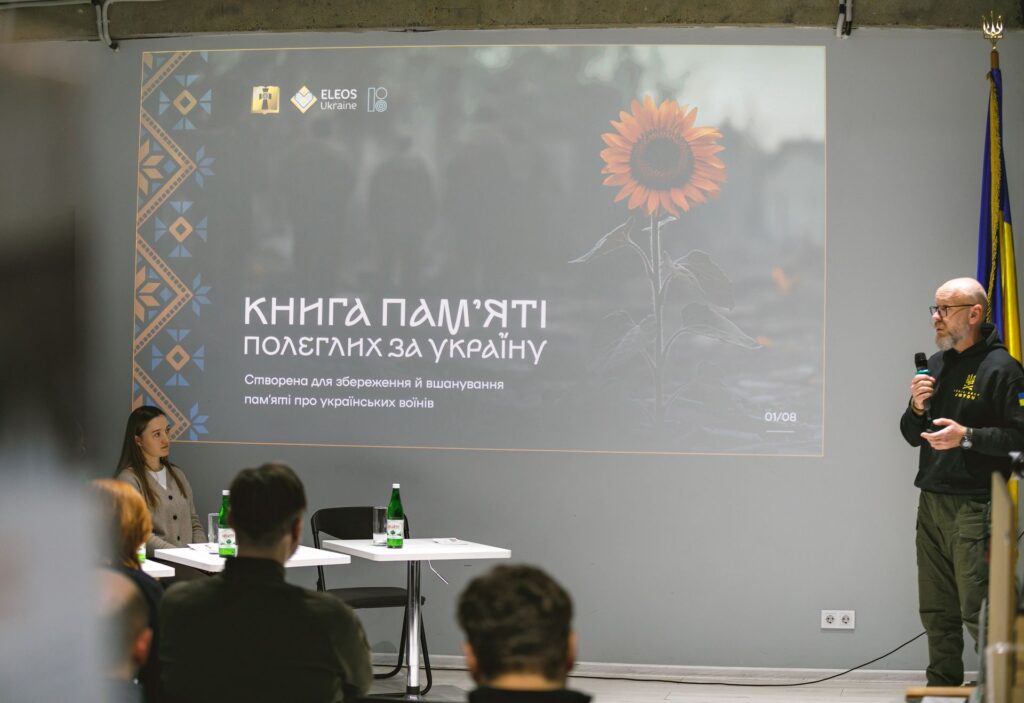
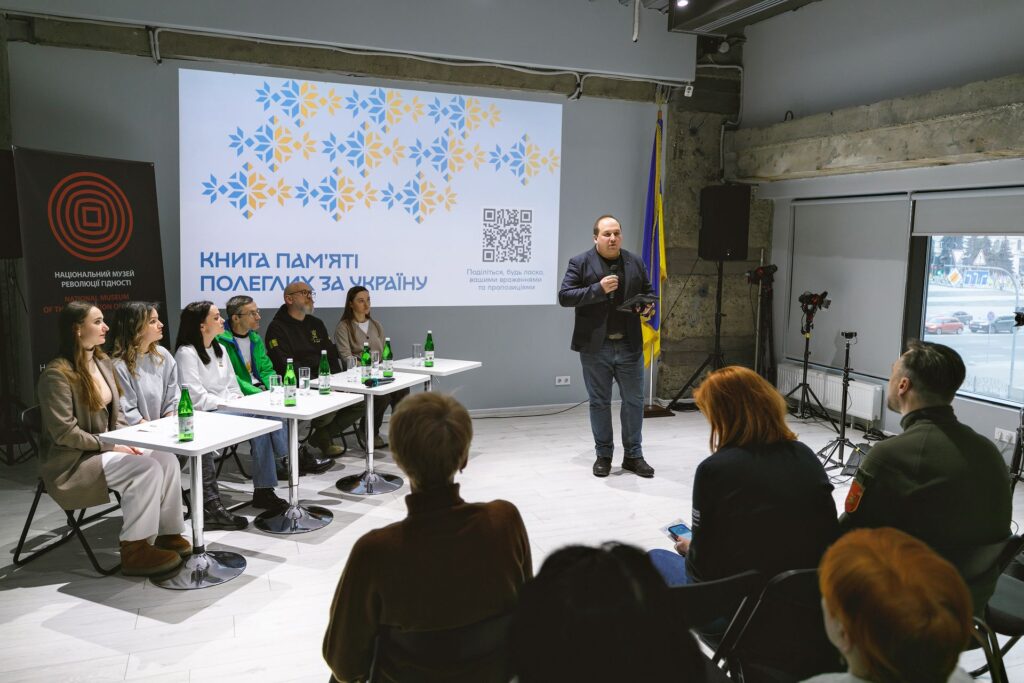


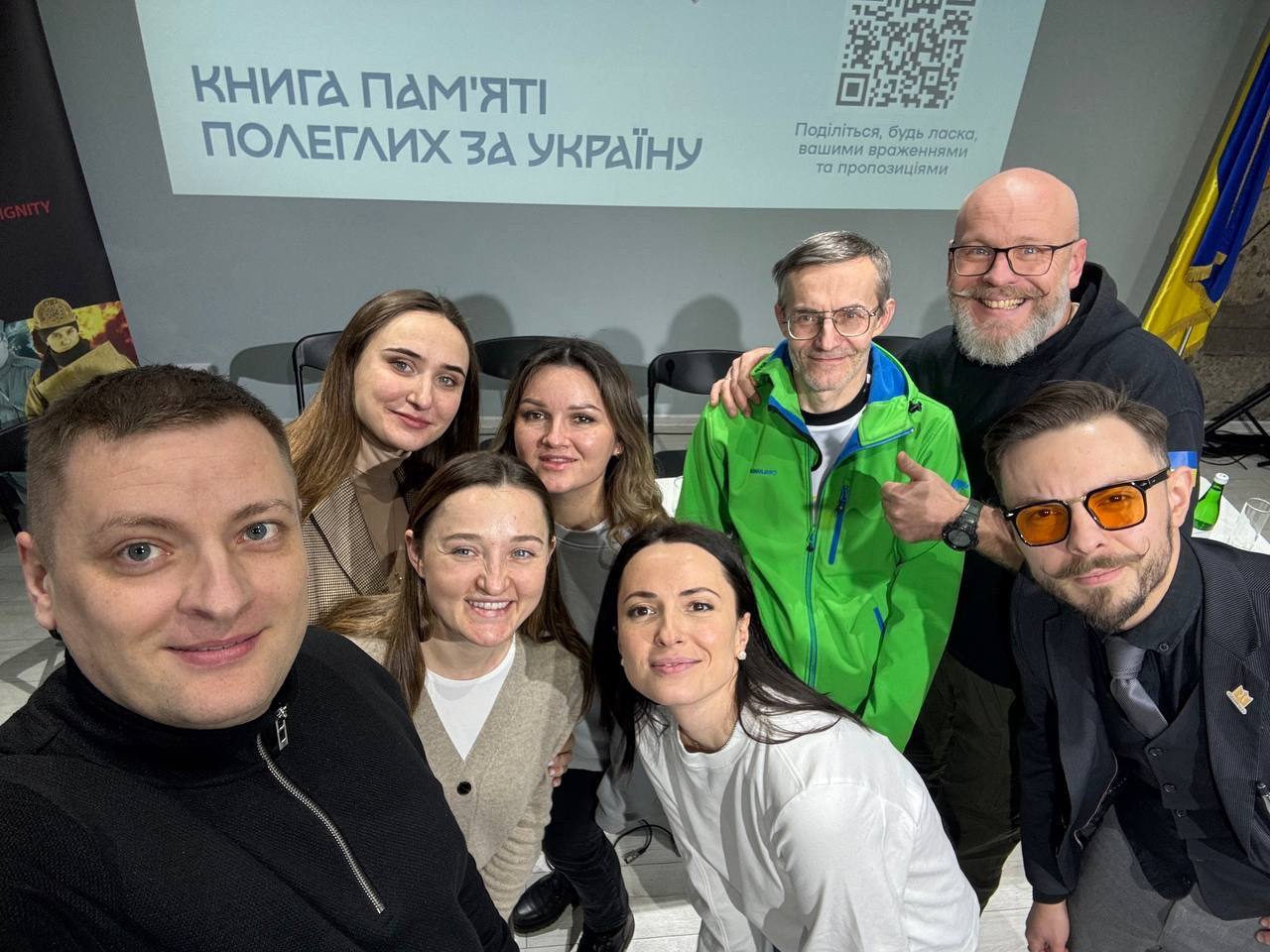
At the beginning of 2025, The Memory Book of the Fallen for Ukraine entered its new chapter. It was redesigned, expanded and became more relevant than ever. The platform now stands not only as a repository of memory but also as a digital memorial designed to carry memory into the future.
The project was relaunched by the Eleos-Ukraine network with support from the International Renaissance Foundation. The technical transformation, including new infrastructure, multilingual capabilities and a modern interface, was led by the team at IT Brander.
"During our trip to the United States, I specifically visited Arlington National Cemetery and the Korean War Memorial to see how remembrance is organised there. We paid close attention to what was written on the monuments and the words that were chosen, taking those insights into account while working on our own project."
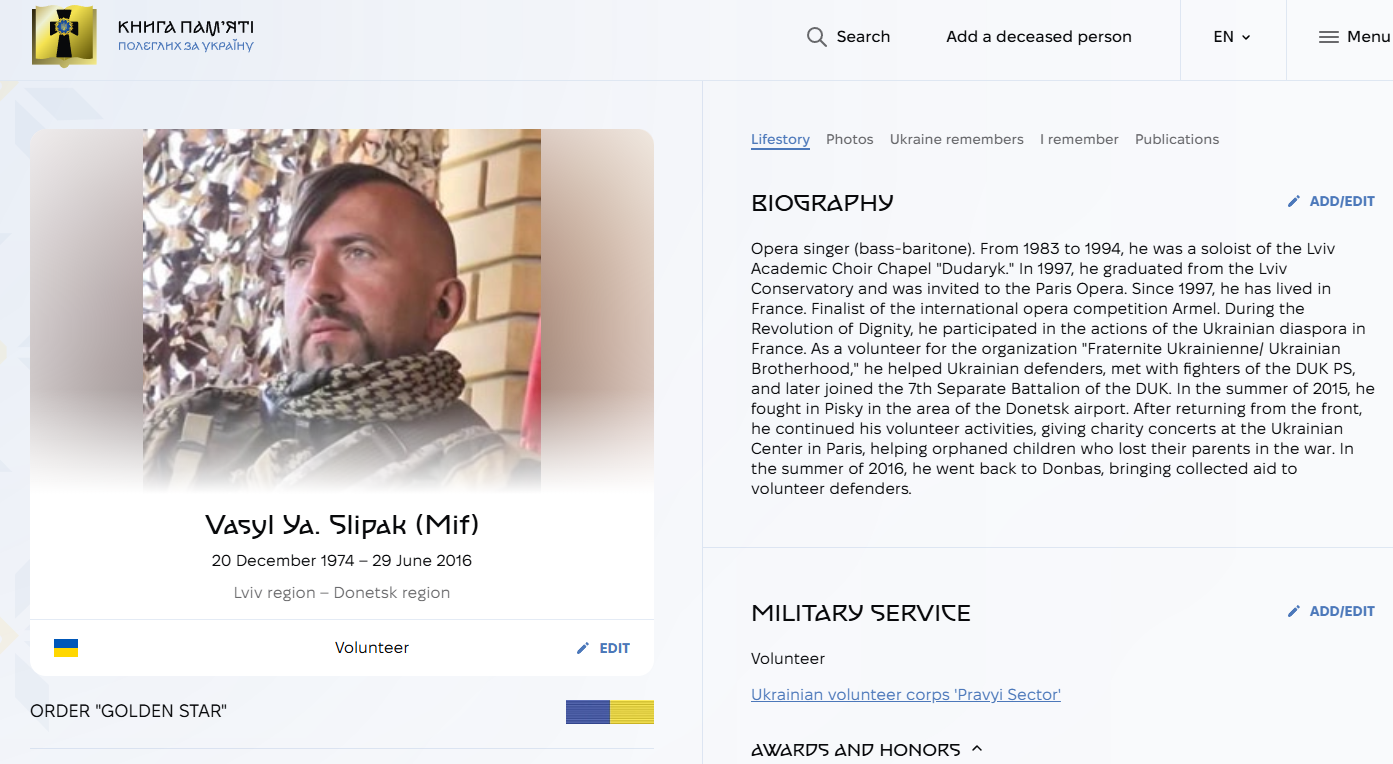
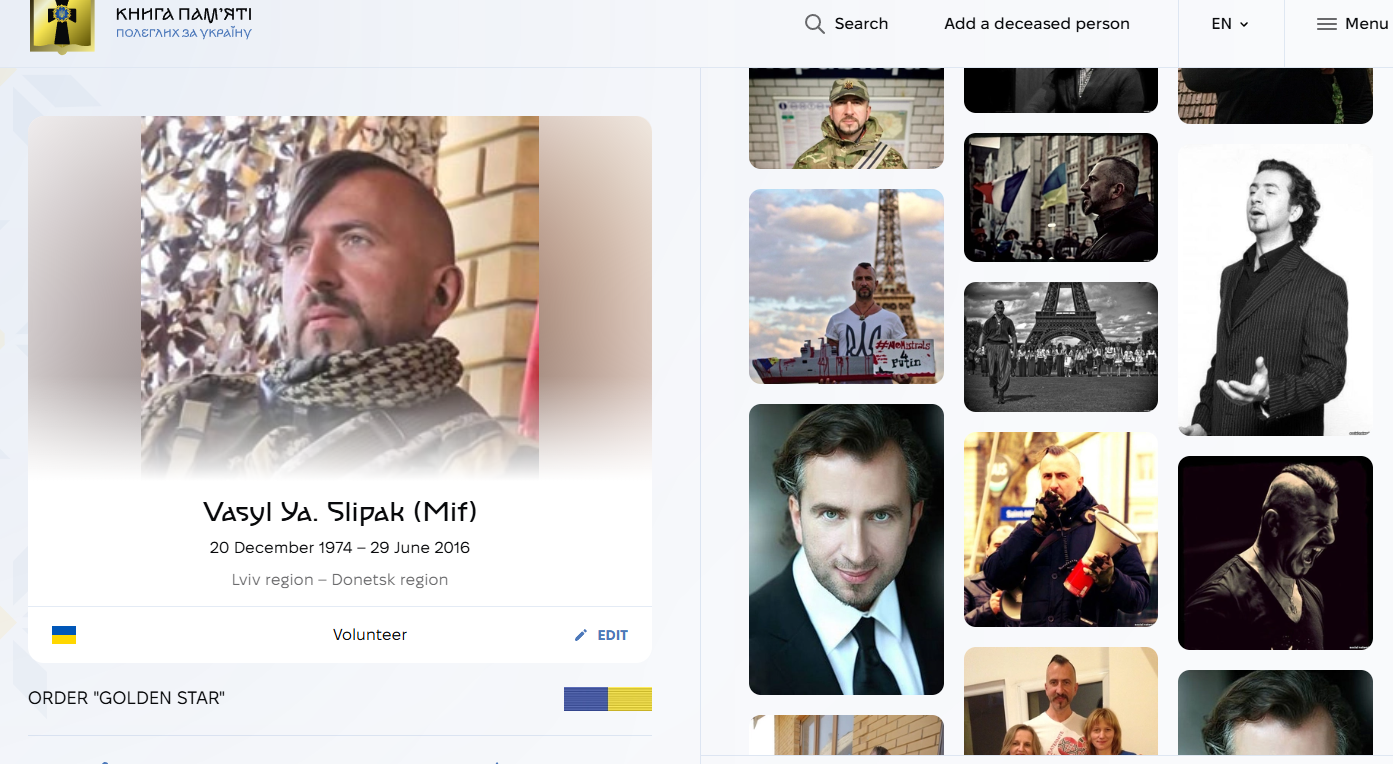
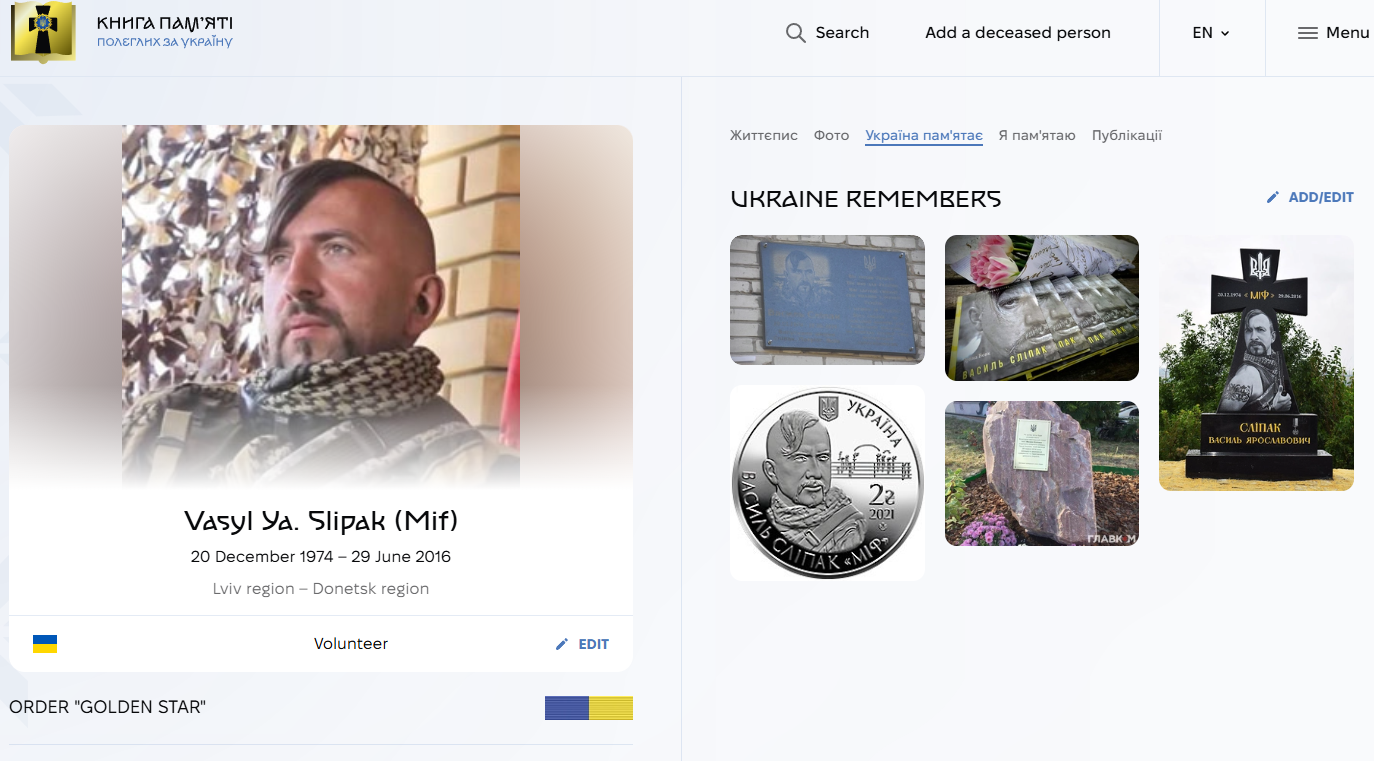
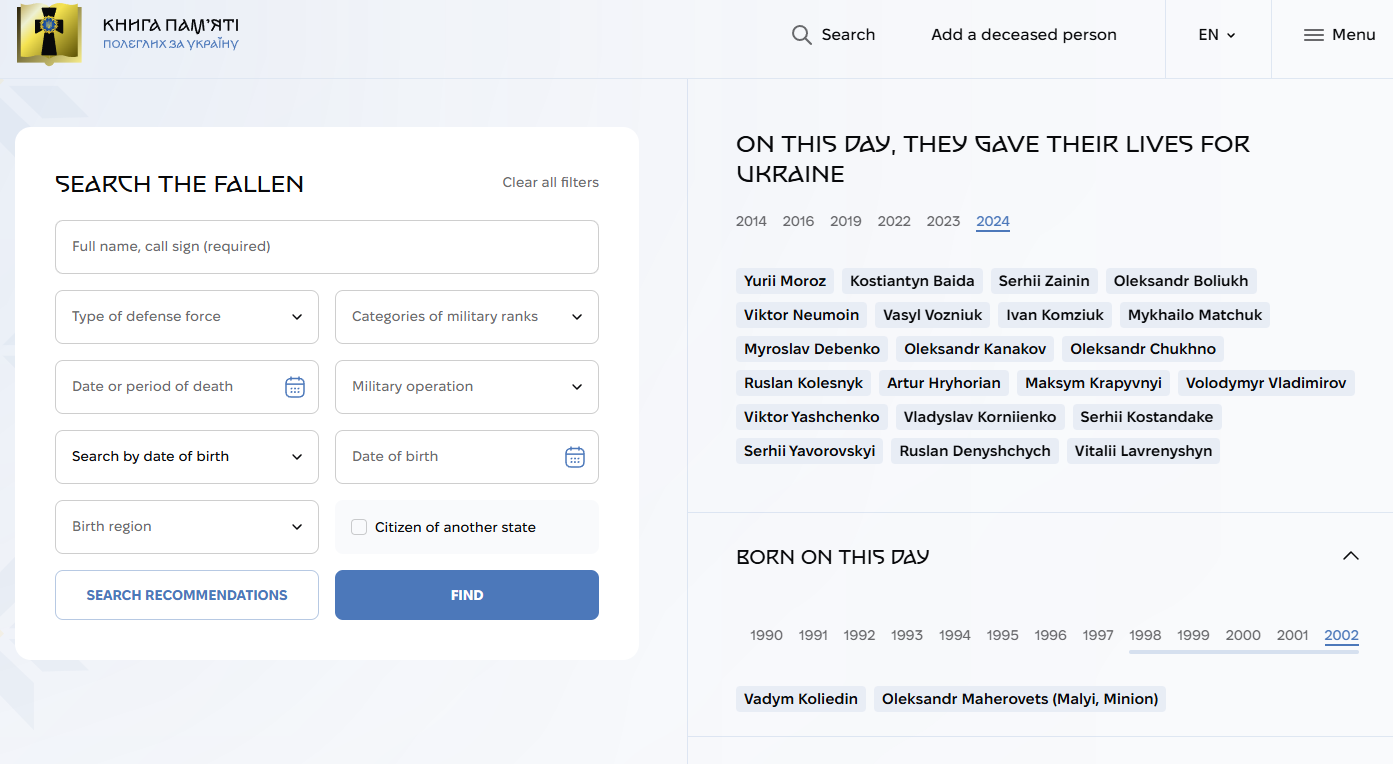
And like memory itself, the platform remains in motion, still in testing, still evolving.
The team continues to gather feedback from families, veterans, and users to make the platform not only meaningful but also easy to use for everyone.
"A new charitable foundation called The Memory Book Fund is in the final stages of registration. This will allow the team to raise donations, cover hosting and development costs and keep the project independent. There are plans to expand the platform's reach by translating it into German, French, and other languages so that the world can learn the stories of Ukraine's defenders."
Father Serhii and The Memory Book team also hope the stories preserved here will inspire future books, films, plays and research, keeping these lives present in our culture.
It's no longer surprising that Ukraine doesn't wait for the war to end: we rebuild, we create, even in the midst of destruction.Why?
"First, because Ukraine's civil society is strong, experienced, and incredibly active, it has already taken on the mission of preserving memory, supporting families, and shaping national-level initiatives, without waiting for state programs or timelines. Second, because no one knows how long this war will last, it may be years or even decades. And if that's the case, we must live, raise children, help one another, honour our fallen, right now, not someday."
This is not just resilience. It's a decision.
The article is produced by UkraineWorld with the support of the Askold and Dir Fund as a part of the Strong Civil Society of Ukraine - a Driver towards Reforms and Democracy project, implemented by ISAR Ednannia, funded by Norway and Sweden. The contents of this publication are the sole responsibility of UkraineWorld and can in no way be taken to reflect the views the Government of Norway, the Government of Sweden and ISAR Ednannia.
interviewed by
